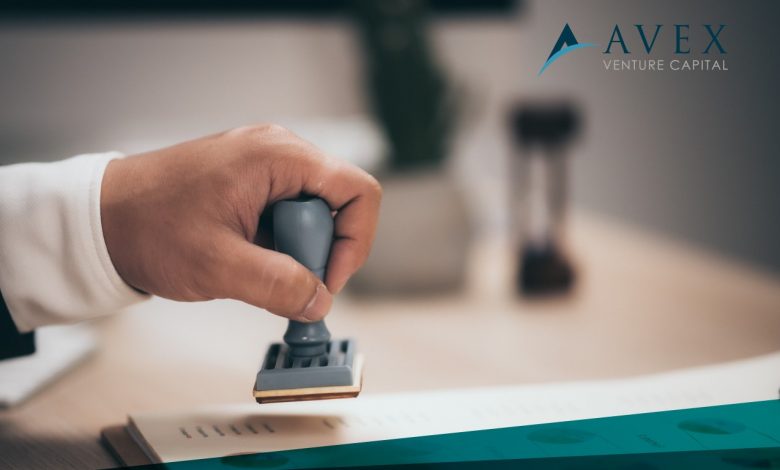
Which type of lending is right for your business? Let’s find out.
Funding your business is one of the first– and arguably most important financial steps most business owners have to make. How you choose to fund your business? There are many ways to fund a business, like crowdfunding, venture capital, finding investor, government grants and lastly taking up a business loan.
Choosing the right type of business loan is crucial. What type of business loan to pursue could affect how you run and structure your business.
In this article, we will take a look at secured vs. unsecured loans, the differences between these two types of loans and which one would best suit your business needs.
What Is a Secured Loan?
Secured loans are the type of loan that is backed up by some form of collateral. Collateral refers to a tangible asset. Generally a residential or commercial property, vehicles or machinery that is used to pledge as “security” for repayment of a loan. If you default on a secured loan, the lender can repossess, foreclose on or otherwise seize the asset to recoup the outstanding balance.
For this reason, secured loans pose less risk to lenders and, therefore, often come with lower interest rates and borrower requirements than unsecured loans. Some lenders do not have a limit on the funds that you can borrow with a secured business loan. The amount that you qualify for will instead be determined by the loan-to-value ratio of your collateral based upon the nature of the asset. In other words, your lender may allow you to borrow against 75% to 90% of the value of the appraised asset. Different lenders might set their loan-to-value ratios differently, you will need to shop around to find the best deal.
Examples of Secured Loans:
- Mortgages – You pledge your property as collateral to secure the loan.
- Car Loans – You mortgage your car to the lender. These are helpful when making a major vehicle purchase.
- The director of a company using their private property to secure a loan for their business.
Pros and Cons of Secured Loans
Here are some of the advantages of secured loans:
- Bigger loan amounts – you can borrow more money with a secured loan, depending on the amount of equity available in the property you are securing the loan against, making them ideal for larger projects and initiatives, such as buying equipment or financing purchase orders.
- Longer repayment tenure – The repayment period can stretch beyond the typical 3-5 years of an unsecured loan, giving you a longer time to pay back the loan.
- Lower repayment amount – as the secured loan can be paid back over a longer period and interest rates are low, repayments can be lower and more easily budgeted for, which is ideal for a new business where cash flow can be a challenge.
The main drawbacks of secured loans are as follow:
- Secured against property – you risk losing your asset to your lender if your business doesn’t generate enough cash and you fall behind with loan repayments.
- Longer repayment term – depending on your point of view; with longer repayment terms, you will be in debt longer.
- Longer processing time – secured loan need to go through more verification processes. More processes mean more time taken up for the loan approval.
What Is an Unsecured Loan?
For an unsecured loan, you do not need to provide any asset as collateral to borrow. This means the lender faces higher default risk. You will generally be offered a higher interest rate and maybe less like to be approved for a loan as the lender have no guarantee of getting their money back.
Unsecured loans typically involve smaller amounts and a shorter period of repayment tenure. Generally, to apply for unsecured business loans, the lender needs to conduct background and credit checks on the borrower. They will look at the Director’s credit history as well as that of the company. It’s also very common for lenders to ask for personal guarantees for larger amounts of unsecured loans. These types of loans can be beneficial for business owners who do not own an asset of value, or would prefer not to risk their personal or company property.
Examples of Unsecured Loans:
- Revolving loans – A revolving loan assigns a credit limit to the borrower and they are free to borrow as many times as required without exceeding the limit, for example, credit card loans.
- Debt consolidation loans – A consolidation loan helps in the consolidation of existing loans.
- Short-term cash flow loans – Where businesses that do not have a long credit history, significant assets to back a loan in need of funding to cover day-to-day operations during a lean trading period.
Pros and Cons of Unsecured Loans
Unsecured loans offer these benefits:
- Smaller loan amounts – If you need only a small amount of funding, an unsecured loan is your best go-to option as You won’t risk losing your collateral since you aren’t providing any.
- Flexible repayment tenure – unsecured loans can have any repayment period, usually up to around five years. The longer the tenure, the lower the interest rate you’ll be charge on the loan.
- Easier and faster to get the loan – unsecured loans for small amounts are quicker to get approval, with fewer processes.
But unsecured loans also come with several disadvantages as well and they are:
- Higher interest rates – because the lender has to bear higher default risk level of the loan not being repay.
- High eligibility criteria – For those who have poor credit history or irregular income stream it will be difficult to obtain an unsecured loan.
- Smaller loan amounts – Lender offer smaller amount as compared to secured loans, as there is no collateral to guarantee the loan repayment.
Secured vs. Unsecured Loans: Which Type of Loan Is Right for My Business?
The determining factors of which type of loan is right for your business mostly depends on the financial objectives of your business and its circumstances. For example, if you possess multiple assets and is willing to use of them as a collateral. You can opt for secured loan to secure higher loan amounts, lower interest rates and better term. Or perhaps, you have financing needs in the range of what an unsecured business loan provides and is able to meet the lender’s qualifications. This avenue can be a solid option.
Last but not least, the strength of your finances and the amount of money you need to borrow will direct whether you go with a secured or unsecured business loan. From there, you’ll just need to decide which lender and loan product best match your needs.
In Malaysia, there are two common options to take out a loan. Business owners will either go for traditional banks, or licensed money lenders, like Avex Venture Capital.
Avex Venture Capital is a licensed money lender in Malaysia under the purview of Ministry of Housing and Local Government. And, governed through Money Lenders Act 1951 and Money Lenders Act (Amended) 2003. We provide a variety of personal loans and business loans that tailor to meet your specific needs.
Apply for your business funding and find out if you qualify today.



